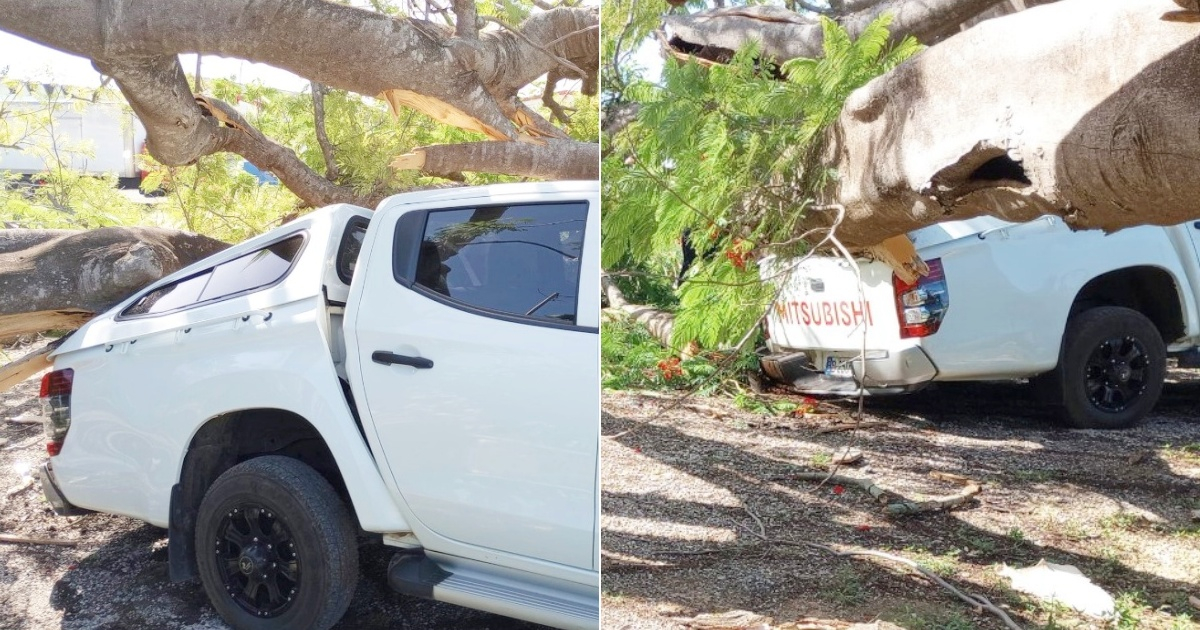A Japanese-made Mitsubishi truck was crushed by a massive fallen tree in the province of Artemisa, according to images shared in the Facebook group Accidentes Buses & Camiones. "In Artemisa, the tree fell and the truck was parked," posted user Roberto Mederos in the group, who did not provide further details about the circumstances or the exact time and location of the incident.
The photos shared show the enormous tree collapsing onto the rear of the truck, which appears to be a Mitsubishi L200 model. Despite its robust build, the vehicle couldn't withstand the unexpected impact.
One of the photos reveals that the truck is a state-owned vehicle—seemingly quite new—belonging to the Grupo Empresarial de Reciclaje (EMPR) of that province.
Although the source did not specify, it is highly probable that the tree fell during a locally severe storm that hit the municipality of Güira de Melena and other areas on Wednesday. The storm brought hail, heavy rains, and strong winds.
The meteorological phenomenon, which accumulated 44 mm of rain in just one hour and recorded wind gusts of up to 87 km/h, is typical of summer afternoons in Cuba, according to meteorologist Raydel Ruisanchez on Facebook.
Key Information About the Tree Fall Incident in Artemisa
Here are some frequently asked questions and answers regarding the recent incident involving a fallen tree and a Mitsubishi truck in Artemisa province.
What caused the tree to fall on the truck in Artemisa?
While not explicitly stated, it is likely that the tree fell due to a severe local storm that brought hail, heavy rains, and strong winds.
Which model of truck was involved in the incident?
The truck involved in the incident appears to be a Mitsubishi L200 model.
Who owns the truck that was crushed by the tree?
The truck is a state-owned vehicle belonging to the Grupo Empresarial de Reciclaje (EMPR) in Artemisa province.
What were the weather conditions during the incident?
The weather conditions included 44 mm of rain in one hour and wind gusts reaching up to 87 km/h, which are typical for summer afternoons in Cuba.
